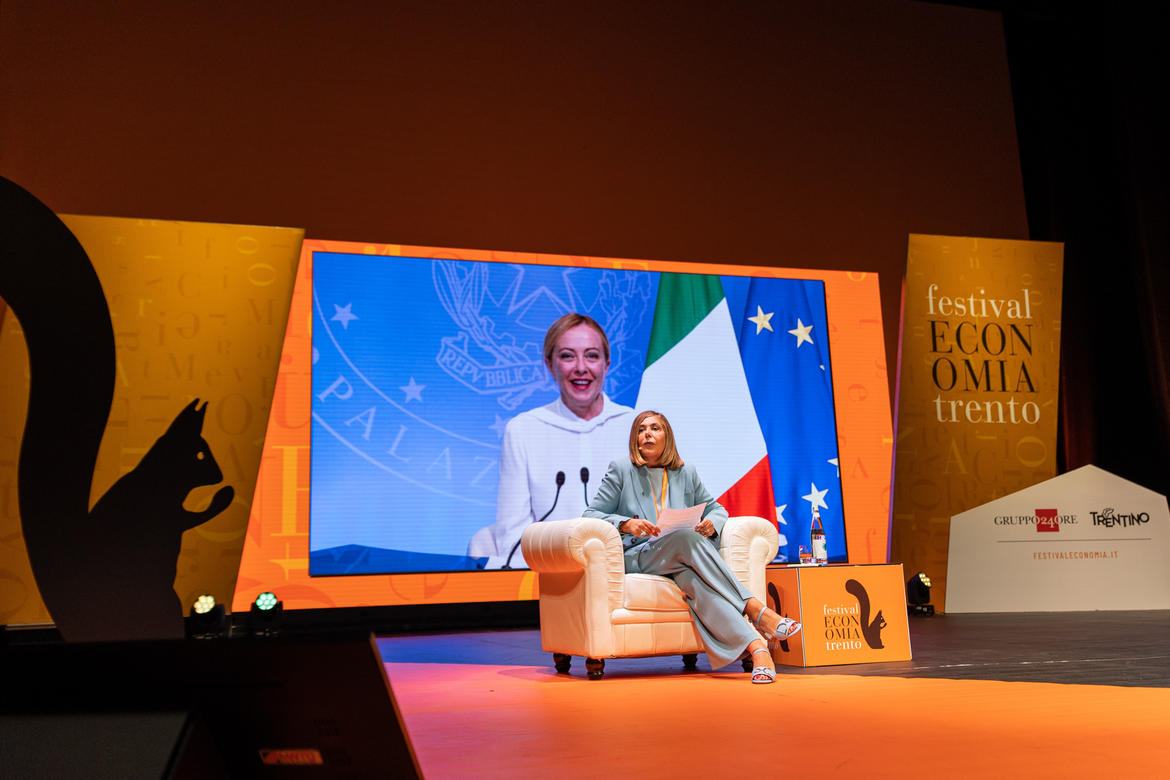
The second day of the 18th edition of the Trento Festival of Economics opened its doors to several prominent speakers from the scientific, business and political worlds. The latter was especially present, with numerous ministers paving the way to fruitful debates on various topics, ranging from the national to the international agenda.
The Minister of Food Sovereignty and Forestry, Francesco Lollobrigida, spoke at the “Food security and international trade, between conflicts and climate change” event at the Palazzo della Regione Autonoma Trentino Alto Adige. He highlighted the importance of dealing with these topics, especially considering how climate change has already affected our territory, starting with the latest natural disaster in Emilia Romagna.
Afterwards, Giovanni Tria, Former Minister of Economy and Finance, presided over the debate “New Globalization and the role of China” in Teatro Sociale. According to panellists, even though international institutions (such as the World Bank, the World Trade Organization, and the International Monetary Fund) have been playing a significant role in the aftermath of World War II, we are now living in a world which is entirely different and which requires changes also inside institutions.
Followingly, Daniela Santanchè, Minister of Tourism, held a speech on “Tourism, the challenge is planning its development” in Sala di Rappresentanza of Palazzo Geremia. Recently, a debate on capping the number of tourists for certain areas has been sparkling; the minister firmly set herself against it, as tourism is a resource which needs careful planning, diversification of the offer and acting on the peaks of high and low seasons.
Then Raffaele Fitto, the Minister for European Affairs, the South, Cohesion Policies and the National Recovery and Resilience Plan, spoke on “How NRRP is changing, starting with energy and cohesion funds”. From the Sala della Fisarmonica, the minister focused on how the Plan needs an adjustment - since when it was thought, nobody could have imagined that a war, an increase in energy costs, and inflation would have been taking place simultaneously.
Afterwards, the Vice-Minister of Economy, Maurizio Leo, discussed “Tax reform: how to start acting” from the Conference Room at the Department of Economics. According to the Vice-Minister, Italy is taking steady strides towards simplifying bureaucracy - especially regarding the income tax and the value-added tax.
To a remarkable closing of a dense morning, the Italian Prime Minister Giorgia Meloni spoke about “The country we want” in Teatro Sociale. The debate began with questions about the floodings that recently hit Emilia Romagna, devastating the region; then, the NRRP was addressed, followed by the new tax reform. Regarding the global chessboard, Meloni highlighted how Italy today is “a respected partner in a multilateral system; our stance is of a serious, reliable and assertive country”. As to Mattei’s Plan for Africa, she stated: “It is a continent which is not poor, it is wealthy, with an incredible potential for energy production, and it needs to be supported through winning - and not predatory - cooperation on training, jobs, opportunities for young people while providing answers on the migration phenomena and the energy supply for Europe”.
The program of the four-day Festival is available at the festivaleconomia.it website, where all events and speakers are published.
At this link , information on facilities for travelling and staying in Trento during the days of the Festival is available.
Accreditation for journalists, photographers and videographers needs to be asked through the form: https://www.festivaleconomia.it/en/stampa/accredito-stampa





